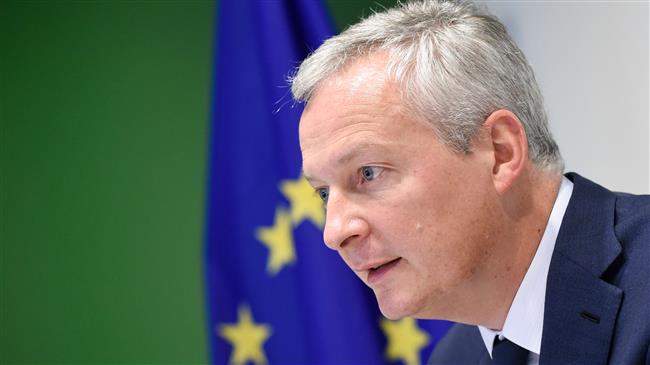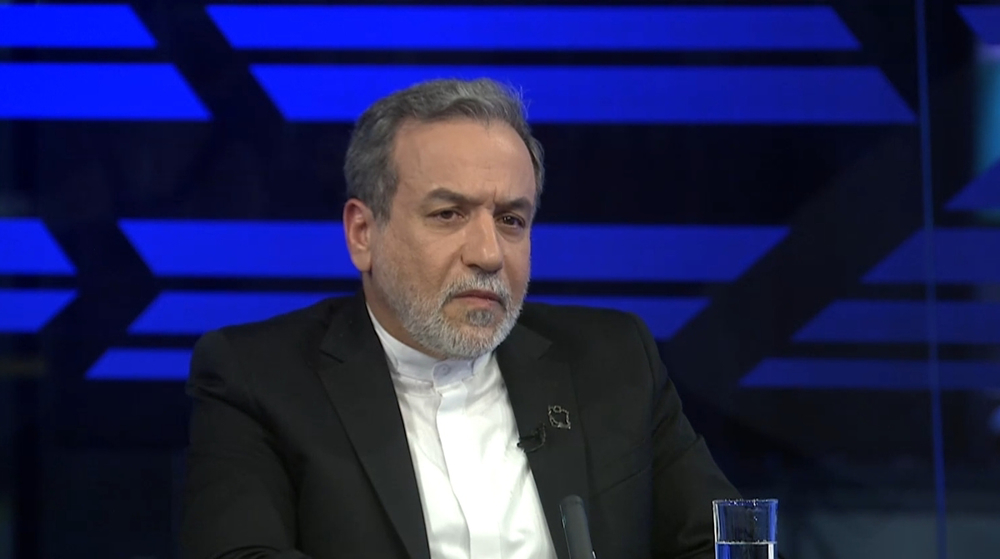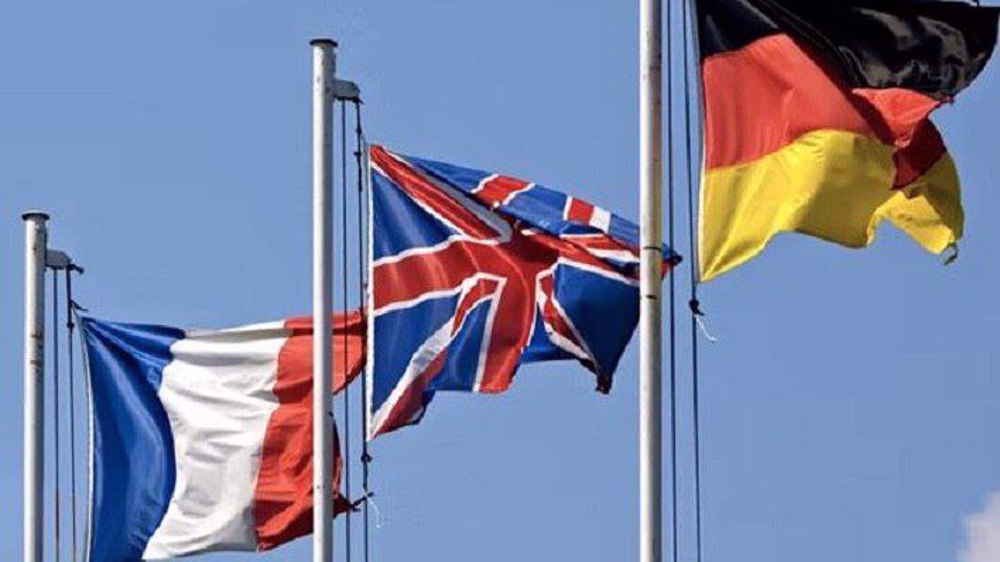France: Row with US on Iran can boost EU’s financial independence
France says the European Union must use the ongoing row with the US over the Iran nuclear deal as a chance to increase the bloc's financial autonomy and stop following Washington’s lead in its trade relations with the world.
“I am convinced that the outcome of that crisis with Iran will be the chance for Europe to have its own independent financial institutions, so we can trade with whoever we want,” French Economy and Finance Minister Bruno Le Maire said on Friday.
What the French minister called ‘crisis with Iran’ is an ongoing row with the US over the sanctions it unilaterally imposed on the Islamic Republic after the Donald Trump administration’s withdrawal from the Iran nuclear deal.
The sanctions, the first batch of which was imposed in August and the second is due in November, keep European companies from working with Tehran, as the US has threatened the companies doing business with Iran would lose the American market and face penalties.
This is what Le Maire and other European officials strongly reject. “It is not up to Washington to decide whether we are allowed to trade with Iran,” the French minister said.
Le Maire’s comments, made at the Globsec Tatra Summit conference in Slovakia’s Strbske Pleso, echoed earlier remarks by EU foreign policy chief Federica Mogherini, who said the US is still the EU’s strongest ally, but the bloc cannot allow other states to decide with whom European countries can do business.
In defiance of the US’ bid to put Iran under pressure, the European Union on September 24 introduced an initiative to facilitate payment to/from Iran as part of its efforts to save the 2015 nuclear deal, officially known as the Joint Comprehensive Plan of Action (JCPOA).
The "Special Purpose Vehicle (SPV)", which is aimed at keeping trade with Tehran flowing while the US sanctions are in place, was unveiled in a joint press conference by Mogherini and Iranian Foreign Minister Mohammad Javad Zarif after a ministerial meeting of the P4+1 – France, the UK, Germany, Russia, and China – on the sidelines of the UN General Assembly in New York.
"Mindful of the urgency and the need for tangible results, the participants [of the ministerial meeting] welcomed practical proposals to maintain and develop payment channels, notably the initiative to establish a Special Purpose Vehicle to facilitate payments related to Iran's exports, including oil, and imports, which will assist and reassure economic operators pursuing legitimate business with Iran," Mogherini and Zarif announced.
The EU foreign policy chief later announced the channel will be established before November even though it is still at initial stages.
The SPV plan has outraged the US officials. Secretary of State Mike Pompeo said last month that he was “deeply disappointed” that the remaining countries in the nuclear deal plan to set up a special payment system with Iran to bypass US sanctions.
He also condemned the plan as "one of the most counterproductive measures imaginable".
US National Security Adviser John Bolton also blasted the EU plan, and pressed the SWIFT global payments messaging system to reconsider dealing with the Islamic Republic.
He said his country would not allow the EU or anyone else to undermine the “aggressive and unwavering” enforcement of US sanctions on Iran.
“The European Union is strong on rhetoric and weak on follow-through. We will be watching the development of this structure (SPV) that doesn’t exist yet and has no target date to be created. We do not intend to allow our sanctions to be evaded by Europe or anybody else,” Bolton said last month.
Jan. 15: ‘Axis of Resistance’ operations against Israeli occupation
VIDEO | US fires: Criticism mounts over govt. failure to respond
VIDEO | Fears, hope in Gaza amid intensified ceasefire efforts
VIDEO | Press TV's news headlines
Hamas: Ceasefire agreement result of steadfastness, resistance in Gaza over 15 months
Hamas thanks Iran, Resistance Front following achievement of ceasefire in Gaza
'Capitulation': Israeli officials and media concede Gaza defeat as truce unfolds
'Gaza has won': Social media users react to ceasefire with mix of relief, joy












 This makes it easy to access the Press TV website
This makes it easy to access the Press TV website